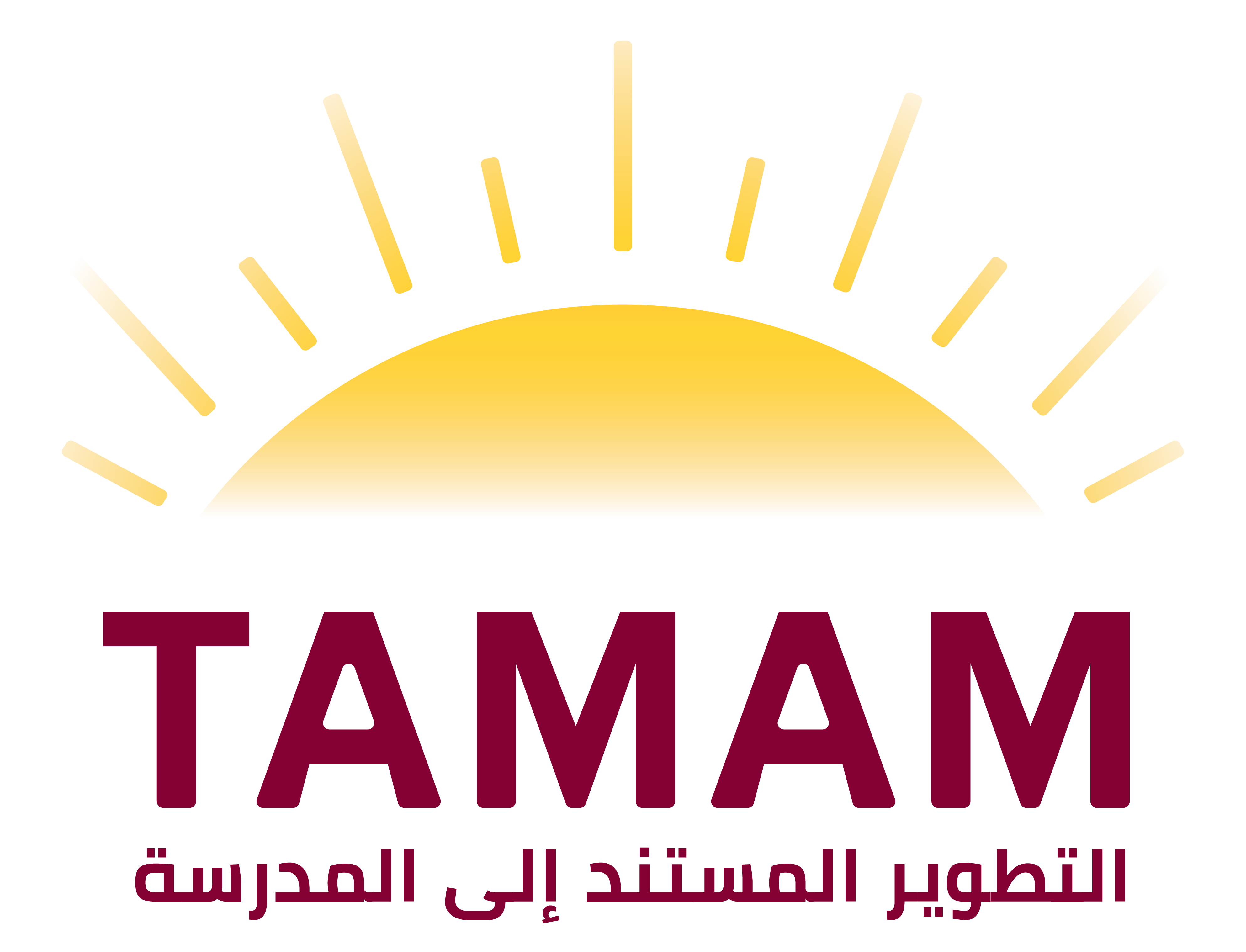Despite the growing awareness of the need for educational reform, Arab reform attempts failed in positively influencing schools, classroom practices, and students’ achievement (Bashshur, 2005). Many associated the failure of these attempts with certain design characteristics related to the planning, implementation and evaluation of the reform initiatives and are shaped by the sociopolitical context of the Arab region (Karami-Akkary, 2014). TAMAM a new educational reform initiative in the Arab region consists of a design for building leadership capacity among teams of practitioners for school-based improvements (Karami-Akkary & Rizk 2011; Karami-Akkary et al., 2013; Karami-Akkary, et al., 2012). Despite TAMAM increasing popularity among Arab schools, evaluation of the impact of its Capacity Building Program is still limited. This research study focuses on the Capacity Building Program of TAMAM and not the whole TAMAM reform program. Hence, it examines the effectiveness of TAMAM’s Capacity Building Program on the professional learning of the school lead team members and its impact on the motivation of the school lead team members and on the school organizational learning from the perspectives of the members of a team of practitioners who have participated in designing, implementing and evaluating the Capacity Building Program. Additionally, it aims to evaluate the extent to which the improvement project designed by lead teachers is effective in addressing the improvement need which is enhancing students’ behavior. For the purpose of this study, the following questions will be addressed:
- To what extent and in what manner did the TAMAM’s Capacity Building Program impact the school team members’ knowledge, skills and attitudes according to TAMAM’s competencies?
- What is the impact of TAMAM’s Capacity Building Program, on the team members’ acquisition of knowledge and skills of initiating, planning, implementing and evaluating a school-based improvement initiative according to the stages of the TAMAM improvement journey?
- How did TAMAM Capacity Building Program, promote school team members’ motivation to commit and sustain their commitment in school-based improvement?
- What is the impact of the school participation in the TAMAM capacity building model on the school’s organizational structure and professional norms from the perspective of the team members and school principal?
- To what extent and in what ways did the implementation of the improvement project designed by lead teachers impacted students’ behavior?
The selected case school is a public non-profit school which joined the TAMAM project in year 2013-2014 and volunteered to implement the newly designed, Capacity Building Program. The case school completed one full cycle of TAMAM’s school improvement journey in 2017- 2018.The participants in the study will comprise all the individuals who took part in the capacity building activities in the TAMAM project at the case school between 2013-2018, the school lead team members, the case school principal and assistant principal, and parents of the children who were at the school when implementing the project. Diagnostic checklists, individual interviews, focus group interview, as well as relevant school documents will be the sources of data. The diagnostic checklist and focus group questions are copyrighted documents prepared by the PST. The expected findings of the study add to the scarce literature and empirical data on capacity building in the field of school-based improvement and reform in the Arab World. It will also provide the designers of TAMAM with evidence on the nature of its impact. It can also provide the leaders of the participating school the conditions that can help in sustaining the impact or figure ways to enhance the areas that still need improvement. At a larger scale, this research paper can be also helpful to other schools’ practitioners and leaders in similar contexts as well as coaches and university educators involved in building capacity for sustainable schools’ improvement.
